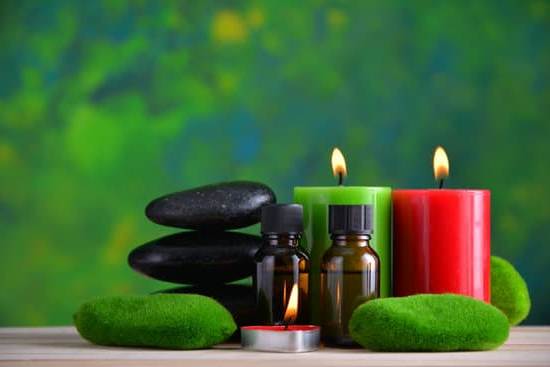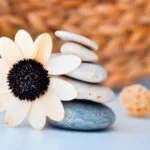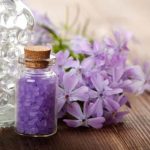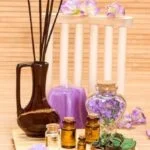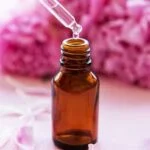Aromatherapy is a form of holistic medicine that has gained popularity in recent years for its natural approach to healing and wellness. This alternative therapy uses essential oils extracted from plants to promote physical, mental, and emotional well-being. Aromatherapy is believed to have originated thousands of years ago and has been used by various cultures for its therapeutic effects.
The practice of aromatherapy involves the use of aromatic essential oils through inhalation, absorption into the skin, or ingestion, with each method tailored to address different health concerns. These essential oils are known for their ability to stimulate the brain, influence emotions, and even have antibacterial and anti-inflammatory properties. The combination of these benefits makes aromatherapy a comprehensive approach to holistic healing.
It is important to understand that aromatherapy focuses on treating the individual as a whole entity rather than just targeting symptoms. By addressing the physical, mental, and emotional aspects of a person’s health, aromatherapy aims to restore balance and promote overall wellness. Throughout this article, we will explore the history, science, techniques, benefits, and comparisons of aromatherapy as a holistic approach to well-being.
History and Origins of Aromatherapy
Aromatherapy dates back thousands of years and has been used across various cultures for its healing properties. The practice of using essential oils extracted from plants for therapeutic purposes can be traced back to ancient civilizations such as Egypt, Greece, and China. In Egypt, aromatic oils were used in religious ceremonies and rituals, while the Greeks utilized them for medicinal purposes. Chinese medicine also incorporates the use of essential oils to balance qi, or vital energy.
The term “aromatherapy” was coined in the early 20th century by a French chemist named René-Maurice Gattefossé, who accidentally discovered the healing properties of lavender oil when he applied it to a burn on his hand. This serendipitous event led him to further research the benefits of essential oils, paving the way for the modern practice of aromatherapy.
Gattefossé’s work was further popularized by another Frenchman, Jean Valnet, who published a book on aromatherapy and its uses in natural medicine.
Today, aromatherapy continues to evolve as a form of holistic medicine that takes into account the physical, mental, and emotional aspects of an individual’s well-being. This approach recognizes that health is influenced by interconnected factors such as environment, lifestyle, emotions, and spirituality.
Aromatherapy is not just about treating symptoms but addressing the root causes of illness or imbalance within the body. By promoting relaxation, reducing stress levels, and enhancing overall vitality, aromatherapy is considered a comprehensive healing modality that offers a natural alternative to conventional medicine.
The Science Behind Aromatherapy
Aromatherapy is a form of alternative medicine that utilizes essential oils and plant extracts to promote overall health and well-being. But what exactly is the science behind aromatherapy? How do these natural substances interact with our bodies to produce therapeutic effects? Let’s delve into the research and understanding behind this ancient practice.
Essential Oils and Phytochemicals
One of the key elements in aromatherapy is the use of essential oils, which are highly concentrated plant extracts. These oils contain phytochemicals, or natural compounds found in plants, that have various beneficial properties. For example, lavender essential oil contains linalool, a compound known for its calming and sedative effects. When inhaled or applied topically, these phytochemicals can interact with receptors in our bodies to elicit physiological responses.
The Olfactory System
Our sense of smell plays a crucial role in how aromatherapy works. When we inhale the aroma of an essential oil, it travels through the olfactory system to the brain’s limbic system – the area responsible for emotions, memories, and behavior. This direct pathway allows essential oil molecules to influence our mood, stress levels, and overall mental state. Studies have shown that certain scents can trigger specific reactions in the brain, such as promoting relaxation or improving focus.
Research and Evidence
While aromatherapy has been used for centuries across various cultures, modern scientific research is starting to catch up on its efficacy. Numerous studies have explored the potential health benefits of essential oils and their impact on physical and mental well-being. From reducing inflammation to alleviating anxiety symptoms, there is mounting evidence supporting the therapeutic use of aromatherapy. However, more research is needed to fully understand how aromatherapy works at a molecular level and its effectiveness in treating different conditions.
Benefits of Aromatherapy for Physical Health
Aromatherapy is a form of alternative medicine that uses essential oils and aromatic plant compounds to improve a person’s physical and psychological well-being. It is based on the principle that the fragrance of these oils can stimulate brain function, which in turn can help to alleviate various health issues. Aromatherapy is often considered as a part of holistic medicine, as it takes into account the interconnectedness of the mind, body, and spirit in promoting overall wellness.
One of the key benefits of aromatherapy for physical health is its ability to reduce symptoms associated with common ailments such as headaches, migraines, muscle aches, and respiratory issues. Essential oils like lavender, peppermint, eucalyptus, and tea tree have been found to possess properties that can help alleviate pain and discomfort when used in aromatherapy practices. For example, inhaling peppermint oil can aid in relieving tension headaches due to its cooling effect.
Furthermore, aromatherapy has also been shown to have positive effects on improving sleep quality and boosting the immune system. Certain essential oils like chamomile and lavender are known for their calming effects, which can promote relaxation and better sleep.
In addition, oils such as lemon and tea tree have antibacterial properties that may help ward off infections when used in diffusers or diluted for topical application. The use of aromatherapy is not only soothing but also serves as a natural approach to supporting physical health and well-being.
| Benefits | Description |
|---|---|
| Pain Relief | Essential oils like lavender and peppermint can help reduce headaches and muscle aches. |
| Improved Sleep | Aromatherapy using oils such as chamomile can promote relaxation for better sleep quality. |
| Boosted Immunity | Certain essential oils like lemon and tea tree have antibacterial properties that support immunity. |
Benefits of Aromatherapy for Mental Health and Emotional Well-Being
Aromatherapy, often considered a form of holistic medicine, encompasses the use of essential oils and natural plant extracts to promote overall well-being. One aspect where aromatherapy shines is its benefits for mental health and emotional well-being. The power of scent has long been known to influence mood and emotions, making aromatherapy a valuable tool for managing stress, anxiety, depression, and other mental health concerns.
Aromatherapy for Stress Relief
One of the most well-known benefits of aromatherapy is its ability to reduce stress levels. Essential oils like lavender, chamomile, and bergamot are commonly used to calm the mind and body, helping individuals relax and unwind after a long day. By inhaling these soothing scents or applying them topically through massage or baths, individuals can experience a sense of peace and tranquility that can alleviate stress-related symptoms.
Aromatherapy for Anxiety and Depression
Aromatherapy also shows promise in helping individuals manage anxiety and depression. Certain essential oils like rosemary, frankincense, and ylang-ylang have mood-boosting properties that can uplift spirits and combat feelings of sadness or unease. Incorporating these oils into daily routines through diffusers, inhalers, or personal blends can provide ongoing support for those struggling with these mental health conditions.
Aromatherapy for Emotional Balance
Beyond stress relief and mood enhancement, aromatherapy is beneficial for promoting emotional balance overall. By creating personalized blends based on individual needs and preferences, people can harness the power of scents to create a calming or uplifting atmosphere in their living spaces or work environments. Whether it’s through creating a sense of focus during work or fostering relaxation before bedtime, aromatherapy offers a versatile approach to nurturing emotional well-being.
Aromatherapy Techniques and Practices
Aromatherapy involves the use of essential oils extracted from plants to promote health and well-being. These oils can be inhaled, applied topically, or used for massage therapy. Each essential oil has its own unique properties and benefits, which can be tailored to address specific physical or emotional concerns. The practice of aromatherapy is deeply rooted in the belief that the mind, body, and spirit are interconnected, which is why it is considered a form of holistic medicine.
One common technique used in aromatherapy is diffusion, where essential oils are dispersed into the air using a diffuser. This method allows the aroma of the oils to fill a room, creating a soothing and relaxing atmosphere. Another popular practice is topical application, where diluted essential oils are applied directly to the skin through massage or other methods. This allows for both absorption through the skin and inhalation of the scent.
Practitioners of aromatherapy often customize blends of essential oils based on an individual’s specific needs or preferences. For example, lavender oil is known for its calming properties and may be used to reduce stress and promote better sleep, while peppermint oil is invigorating and may help with headaches or fatigue.
Some people also incorporate aromatherapy into their daily self-care routines by adding a few drops of their favorite essential oil to a bath or creating their own natural skincare products.
| Aromatherapy Technique | Benefits |
|---|---|
| Diffusion | Creates a relaxing atmosphere |
| Topical Application | Allows for skin absorption and inhalation of scents |
| Custom Blends | Personalized approach to addressing individual needs |
Aromatherapy and Healing Energy
Aromatherapy is often considered part of the realm of holistic medicine due to its focus on treating the whole person – mind, body, and spirit. One key aspect of aromatherapy that sets it apart from traditional medicine is its emphasis on using natural essential oils extracted from plants to promote healing and balance within the individual. These essential oils are believed to not only have physical benefits but also to possess energetic properties that can help restore harmony within the body.
To understand how aromatherapy incorporates healing energy, it is essential to recognize the role of energy flow in holistic practices. In many alternative healing modalities, it is believed that disruptions or blockages in the flow of life force energy can lead to illness or imbalance. Aromatherapy works on subtle energy levels by utilizing the vibrational frequencies of essential oils to clear energetic blockages, activate certain chakras, and promote a sense of well-being.
Here are some ways in which aromatherapy utilizes healing energy:
- Essential oils are selected based on their specific energetic properties that resonate with a particular issue or imbalance.
- Aromatherapy treatments often involve techniques such as massage or inhalation to facilitate the movement of energy within the body.
- Practitioners may also incorporate elements like sound therapy or crystal healing alongside aromatherapy for a comprehensive energetic balancing effect.
Overall, incorporating healing energy into aromatherapy treatments aims to address not just the physical symptoms but also the underlying imbalances that may be contributing to those symptoms. By working holistically on multiple levels – physical, emotional, mental, and spiritual – aromatherapy serves as a powerful tool for promoting overall wellness and harmony within individuals.
Case Studies and Success Stories
Aromatherapy has gained significant attention in recent years, with many turning to this alternative form of medicine for its holistic approach to healing. Utilizing essential oils extracted from plants, aromatherapy is believed to have therapeutic benefits for both physical and mental well-being. Many individuals have found relief from various ailments through the use of aromatherapy, making it a popular choice for those seeking natural remedies.
One success story that highlights the effectiveness of aromatherapy is that of Sarah, who suffered from chronic headaches for years. Traditional medications only provided temporary relief and came with unwanted side effects. After exploring alternative options, Sarah turned to aromatherapy and started using lavender essential oil topically and through diffusers.
The calming and soothing properties of lavender not only helped alleviate her headaches but also improved her overall quality of life. Sarah’s success with aromatherapy showcases how this practice can offer a safe and gentle solution to common health issues.
Another inspiring case study is that of John, who struggled with anxiety and stress due to work-related pressures. Seeking a way to manage his emotions naturally, he incorporated aromatherapy into his daily routine by using citrus essential oils like bergamot and orange. The uplifting scents helped John relax, reduce his feelings of tension, and improve his mood significantly.
Through consistent use of aromatherapy, John was able to find peace and balance in his life without relying on pharmaceutical interventions. These success stories demonstrate the transformative power of aromatherapy as a holistic approach to healing that addresses both physical symptoms and emotional well-being.
Comparing Aromatherapy to Traditional Medicine
Aromatherapy, often referred to as a form of holistic medicine, focuses on utilizing essential oils and plant extracts to promote overall well-being. In comparison to traditional medicine, which typically treats specific symptoms or ailments, aromatherapy takes a more comprehensive approach by addressing the individual as a whole – physically, mentally, and emotionally. This holistic perspective is what sets aromatherapy apart from conventional medical practices.
One key difference between aromatherapy and traditional medicine is the emphasis on prevention rather than just treatment. Aromatherapy aims to maintain balance within the body and mind through the use of natural fragrances and oils, helping to prevent illness or imbalances before they manifest into physical symptoms. This proactive approach aligns with the principles of holistic medicine, which prioritize overall wellness and harmony within the individual.
Additionally, aromatherapy places a strong emphasis on the mind-body connection and acknowledges the influence of mental and emotional factors on physical health. By addressing not only the physical symptoms but also the underlying emotional causes of illness or discomfort, aromatherapy provides a more comprehensive healing experience. This integrative approach highlights how aromatherapy is truly a form of holistic medicine that considers all aspects of an individual’s well-being in promoting health and healing.
Conclusion
In conclusion, aromatherapy is indeed a form of holistic medicine that considers the individual as a whole – body, mind, and spirit. By harnessing the power of essential oils derived from plants, aromatherapy aims to promote physical health, mental well-being, and emotional balance. The history and science behind aromatherapy support its effectiveness in enhancing overall wellness.
One of the key principles of holistic medicine is treating the root cause of an issue rather than just the symptoms, and aromatherapy aligns with this philosophy. Its diverse benefits for physical health, mental clarity, and emotional stability demonstrate how it addresses the interconnectedness of different aspects of well-being. Aromatherapy techniques such as diffusing essential oils, topical application, and inhalation have been used for centuries to support healing and restore balance.
As we continue to explore the potential of aromatherapy in conjunction with traditional medicine practices, it becomes evident that incorporating this holistic approach into our wellness routine can lead to enhanced overall health. The combination of ancient wisdom with modern scientific research has solidified aromatherapy’s place in promoting well-rounded well-being. Whether used alone or in combination with other treatments, aromatherapy is a valuable tool for those seeking a more comprehensive approach to healthcare.
Frequently Asked Questions
What Type of Medicine Is Aromatherapy?
Aromatherapy is a form of alternative medicine that uses essential oils and aromatic plant compounds to improve a person’s physical, mental, and emotional well-being. These oils can be inhaled or applied topically to achieve therapeutic benefits.
What Is the Difference Between Aromatherapy and Herbal Medicine?
The main difference between aromatherapy and herbal medicine lies in their methods of application. Aromatherapy primarily uses essential oils extracted from plants through distillation or cold pressing, focusing on the aromatic properties for therapeutic purposes. On the other hand, herbal medicine utilizes different parts of plants like roots, leaves, and flowers for medicinal use, whether in teas, tinctures, or capsules.
Is Aromatherapy a Naturopathy?
While aromatherapy is often associated with naturopathy due to its use of natural plant extracts for healing purposes, it is not considered a standalone form of naturopathy. Naturopathy includes a broader scope of treatments that emphasize holistic approaches such as nutrition, lifestyle changes, and other natural therapies beyond just aromatherapy alone.

Are you looking for a natural way to improve your health and wellbeing?
If so, aromatherapy may be the answer for you.

